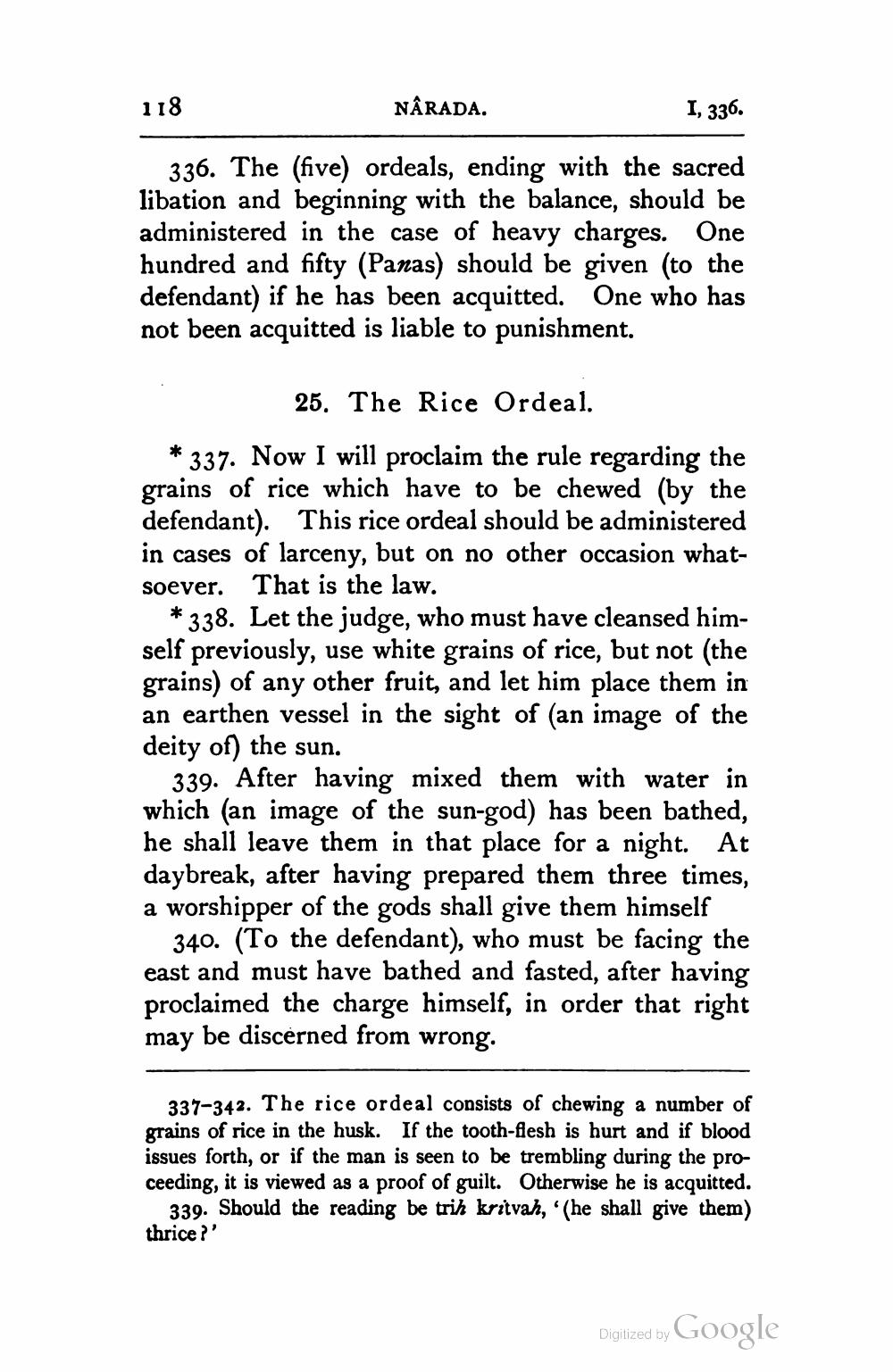________________
118
NÂRADA.
I, 336.
336. The (five) ordeals, ending with the sacred libation and beginning with the balance, should be administered in the case of heavy charges. One hundred and fifty (Panas) should be given (to the defendant) if he has been acquitted. One who has not been acquitted is liable to punishment.
25. The Rice Ordeal. * 337. Now I will proclaim the rule regarding the grains of rice which have to be chewed (by the defendant). This rice ordeal should be administered in cases of larceny, but on no other occasion whatsoever. That is the law.
* 338. Let the judge, who must have cleansed himself previously, use white grains of rice, but not (the grains) of any other fruit, and let him place them in an earthen vessel in the sight of (an image of the deity of) the sun.
339. After having mixed them with water in which (an image of the sun-god) has been bathed, he shall leave them in that place for a night. At daybreak, after having prepared them three times, a worshipper of the gods shall give them himself
340. (To the defendant), who must be facing the east and must have bathed and fasted, after having proclaimed the charge himself, in order that right may be discerned from wrong.
337–342. The rice ordeal consists of chewing a number of grains of rice in the husk. If the tooth-flesh is hurt and if blood issues forth, or if the man is seen to be trembling during the proceeding, it is viewed as a proof of guilt. Otherwise he is acquitted.
339. Should the reading be trih kritvah, (he shall give them) thrice?'
Digitized by Google




